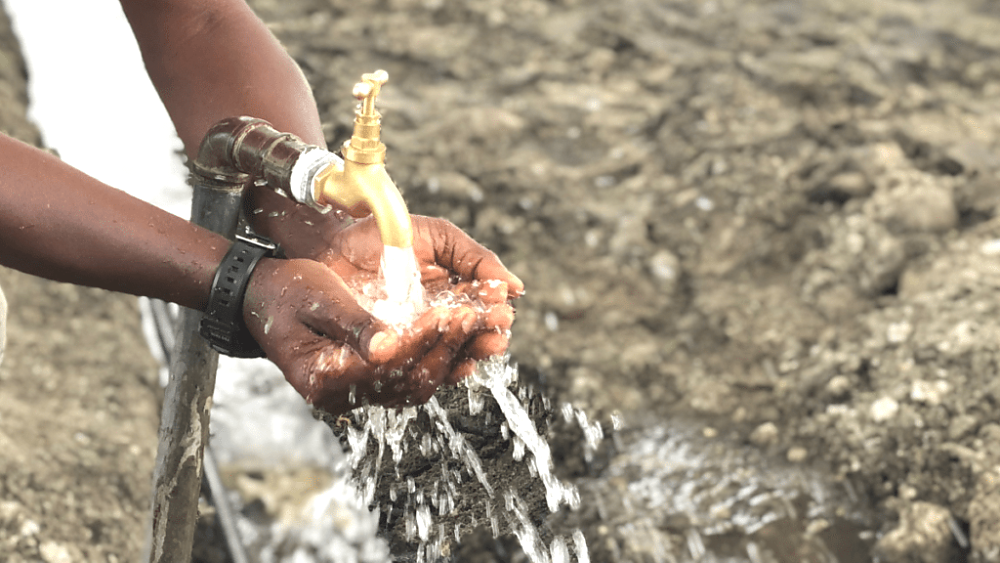Tanzania has taken a huge leap in the provision of water services, with increased access to the precious liquid considerably easing the water-fetching burden especially among women. The success is evident all over the country, with several mega water projects being executed by the government. While some of these projects have been completed, others are in their final stages of completion.
Access to clean and safe water has increased tremendously from 25 percent in 1961 to 86 percent in 2021, making a huge leap in the sector as the nation celebrates 60 years of independence. Similarly, rural water accessibility currently stands at 72,3 percent with a total of 8,708 out of 12,327 villages benefiting from a reliable water supply.
The Minister for Water, Mr. Jumaa Aweso, revealed this while outlining his ministry's achievements, challenges and way forward towards the 60th Independence Anniversary commemorations on December 9th, 2021. According to Mr. Aweso, over the years the ministry has been carrying out major institutional, financial and technical reforms for the country to acquire a sustainable water supply.
"By October 2021, a total of 96 water utilities had been established in major cities, subcities and national projects in ensuring water services are readily accessible at a close proximity to the people. As for the rural areas, there are about 2,115 rural water supply agencies comprising 1,362 accountants and 1,611 technical staff," said Mr. Aweso.
The Minister outlined the various projects which have enhanced water service delivery as including the Lake Victoria Water Supply Project in Kahama and Shinyanga regions and the improvement of water supply services in Dar es Salaam featuring the Upper and Lower Ruvu plant and laying down of the main pipeline. Others are Lake Victoria Water Supply Project to Isaka and Kagongwa, Lake Victoria water Supply Project to the towns of Tabora - Igunga - Nzega, Lindi Town Water Project, water and sanitation projects in Mwanza, Mbeya and Iringa, and the Kigoma Water and Sanitation Project.
The rest are water projects in Kibamba-Kisarawe, Misungwi, Nansio Ukerewe, Longido, Lamadi, Bokwa and Sengerema.
"A total of 26 projects have been completed and will soon be inaugurated by national leaders," he noted. Highlighting the ministry's current direction, he said the docket was committed to attaining the country's Development Vision 2025, which envisages 95 percent water access in urban areas and 85 percent in rural settings.
The Ministry is equally determined to ensure sustainable water resources by protecting, maintaining, developing as well as finding new water sources. In response to the effects of climate change, he pointed out the ministry plans to build large dams including Farkwa, Kidunda, Songwe and Ndembera/Lugoda and medium-sized dams (Dongo) in various parts of the country. He also revealed the plans for the implementation of a Climate Change Response project in Simiyu Region, which will cost 444.6bn/-.
"The project is in the consultation stage once it’s finalized about 800,000 citizens of Bariadi, Itilima and Busega districts are going to benefit." In addition, the government is continuing with the implementation of water service improvement projects in Dodoma, Dar es Salaam, Mbeya, Mwanza, Mara, Tanga, Kilimanjaro, Mtwara and Kagera regions.
On the other hand, the Minister outlined plans for implementing water projects through the utilization of reliable water sources including Great Lakes like the Tanganyika, Nyasa and Victoria and major rivers such as the Ruvuma, Rufiji, Kiwira, Songwe and Kagera rivers.
